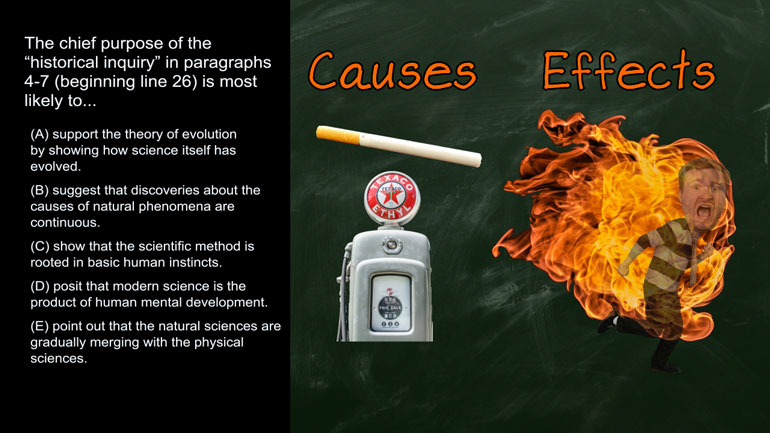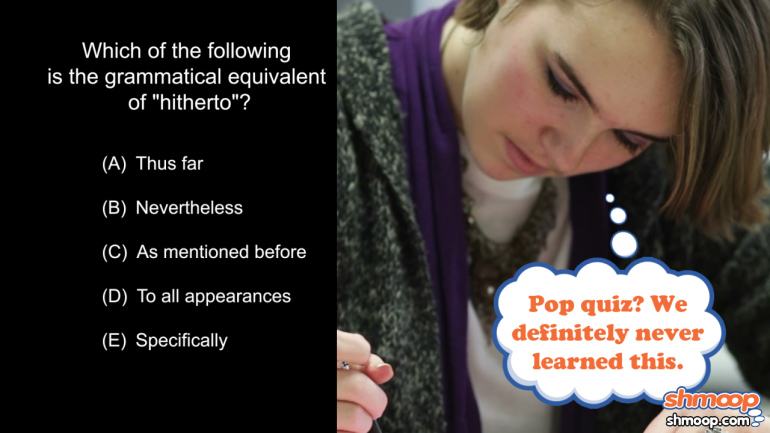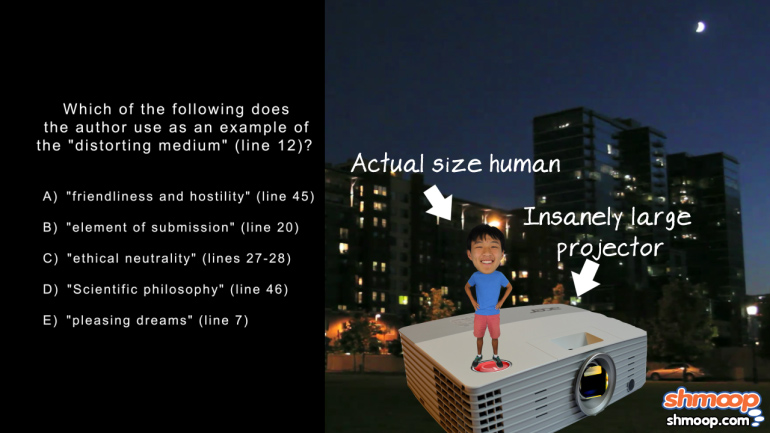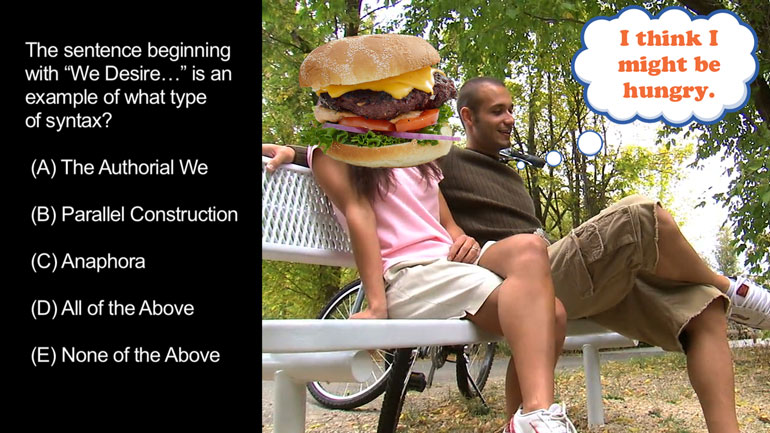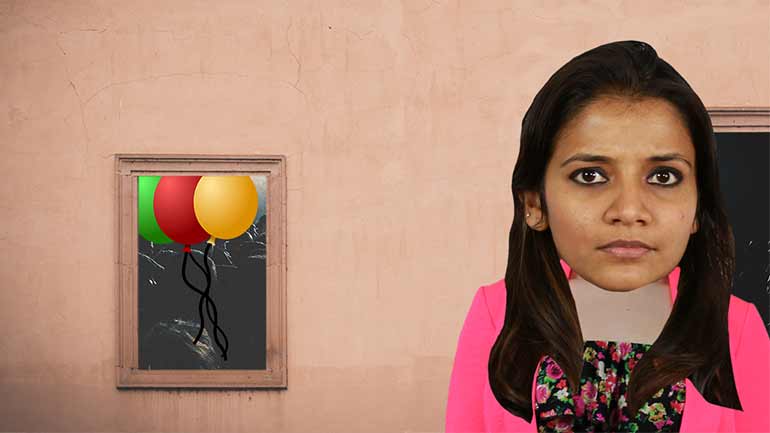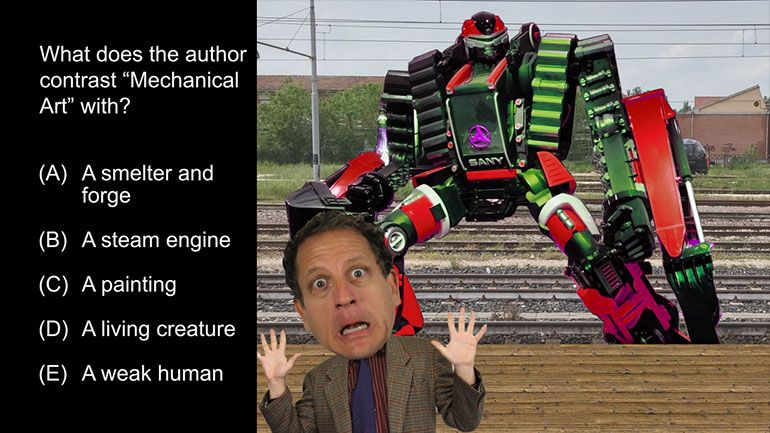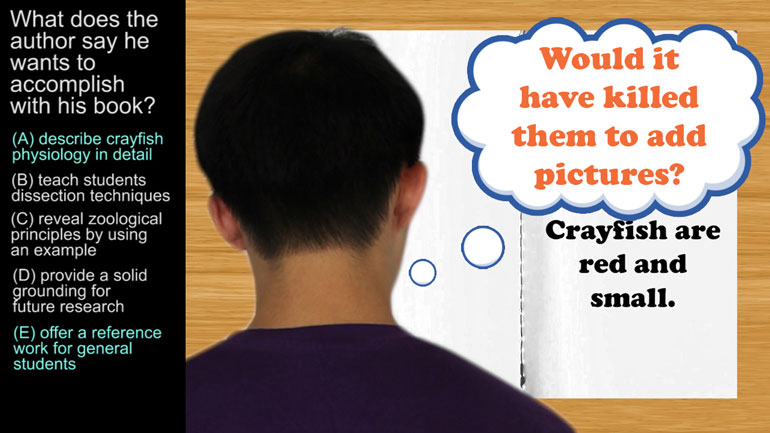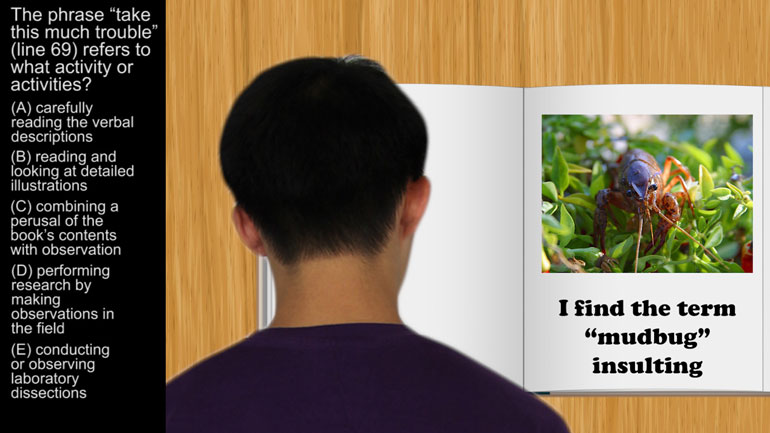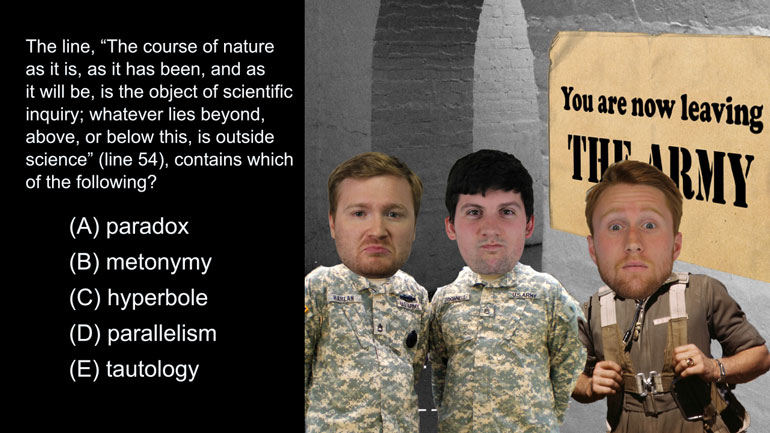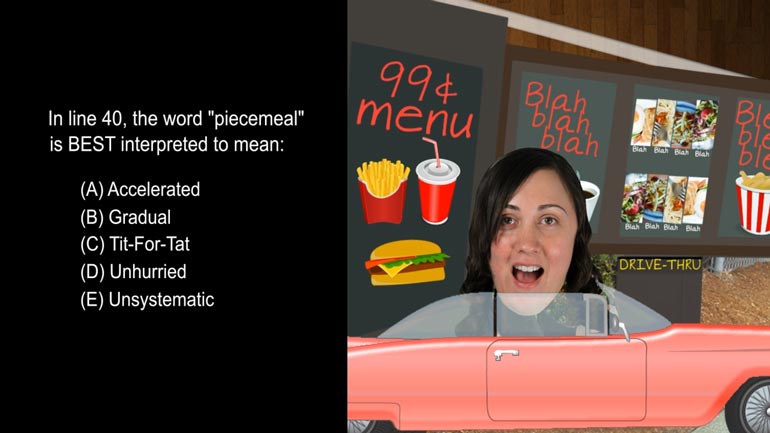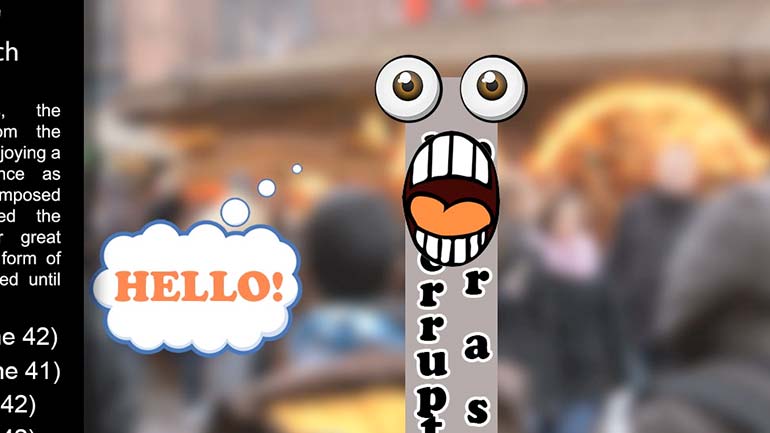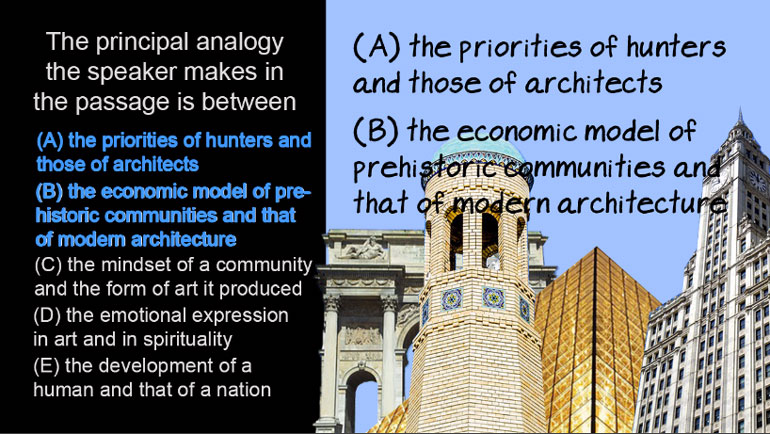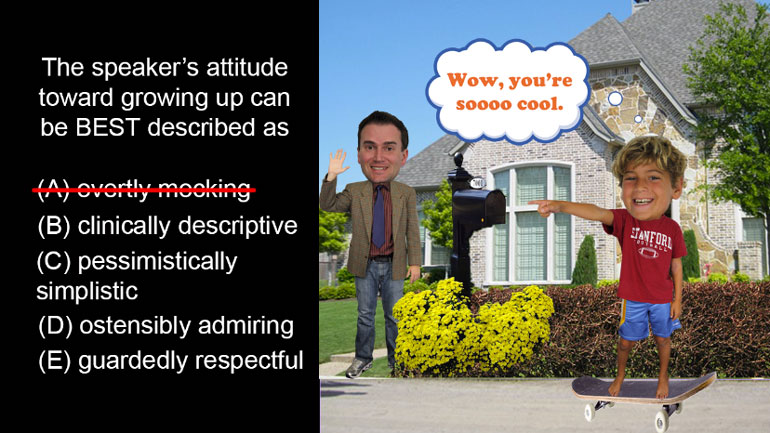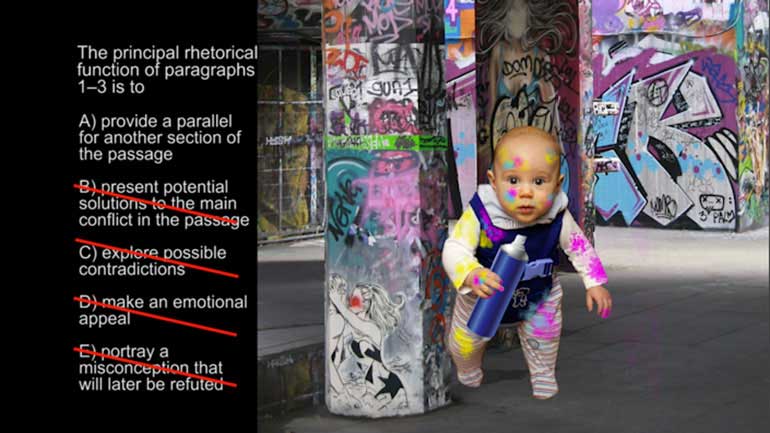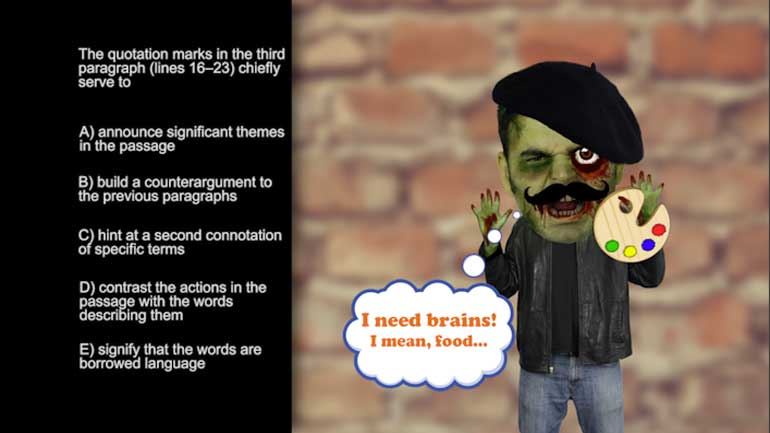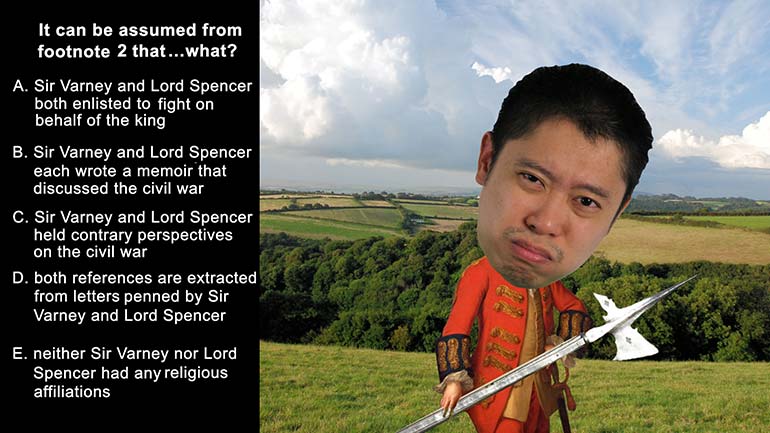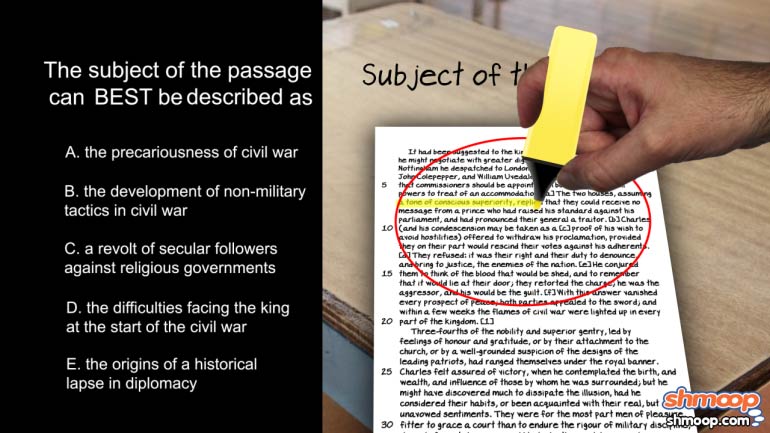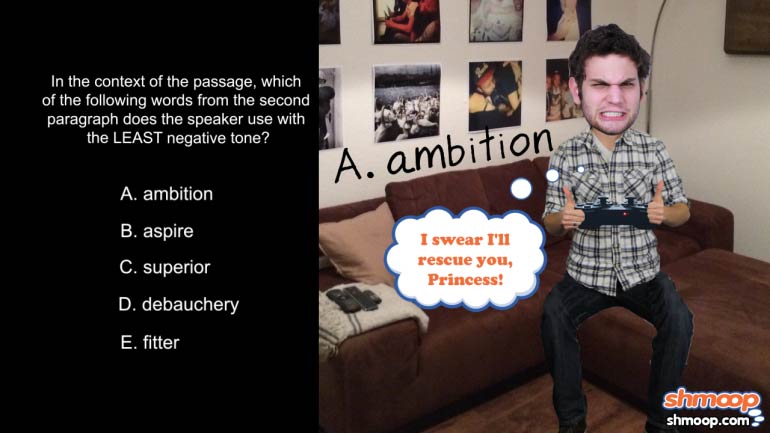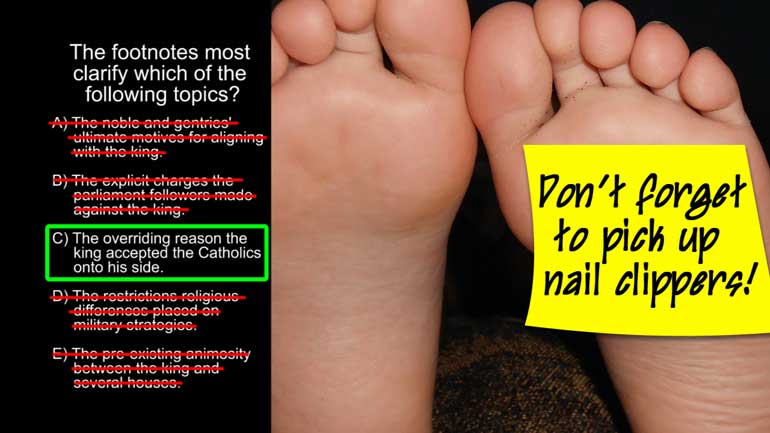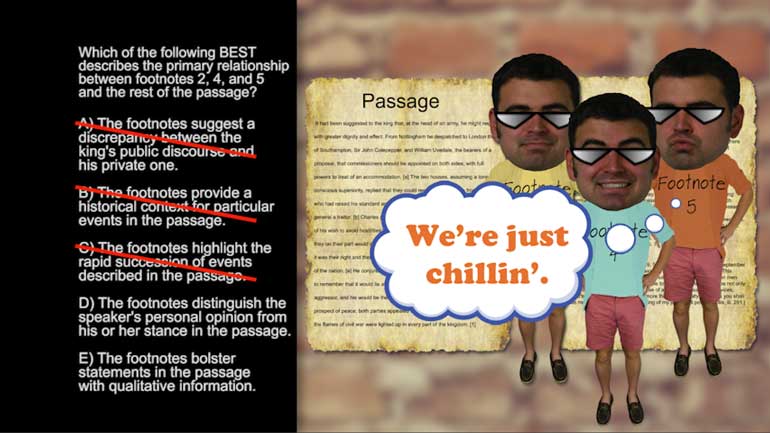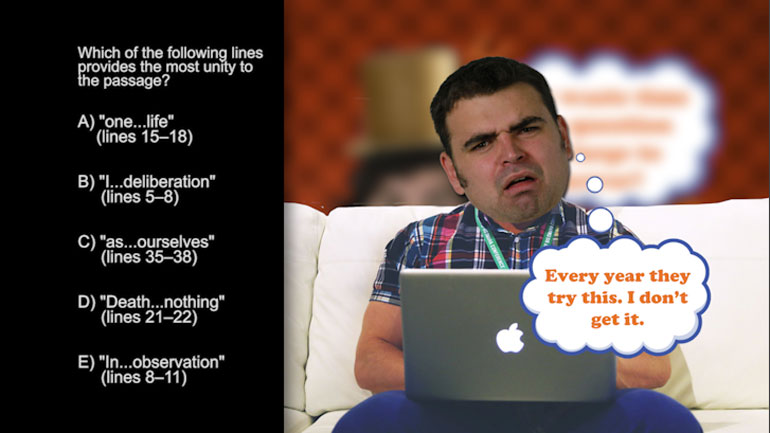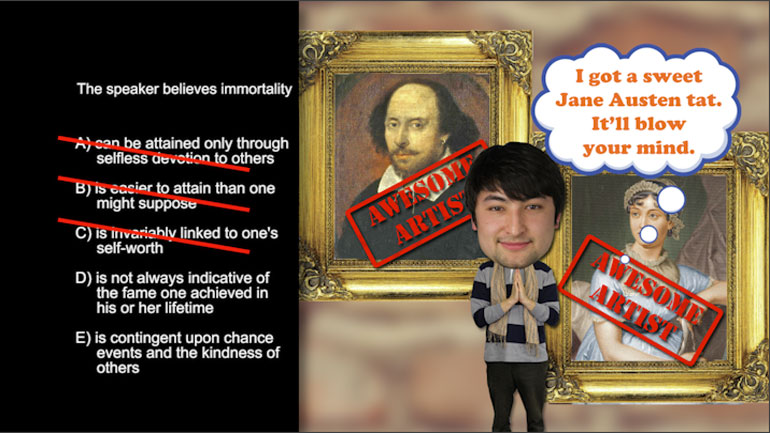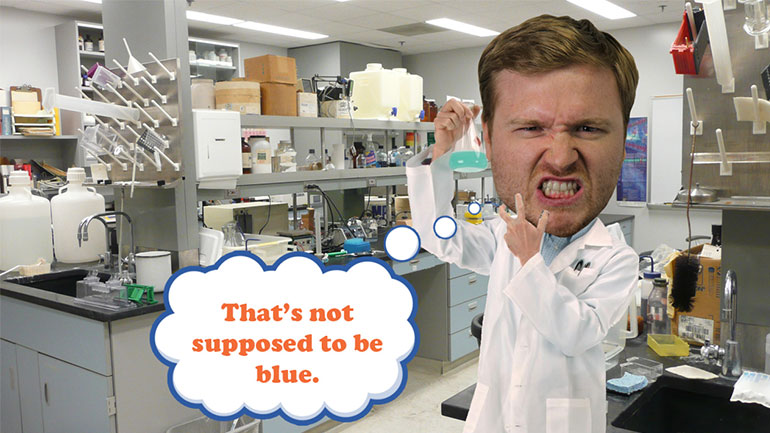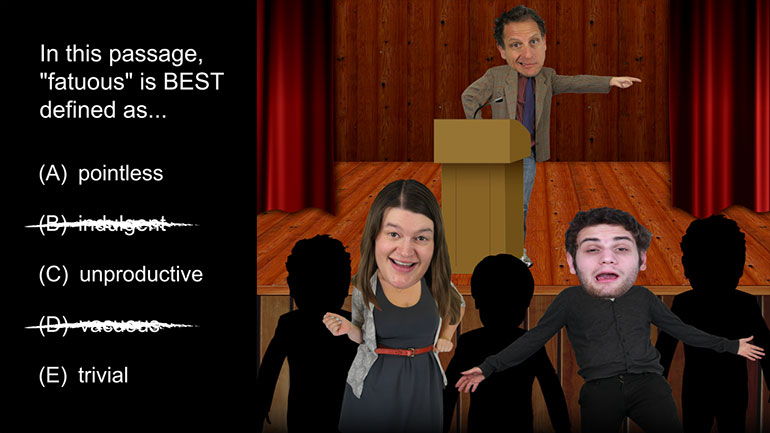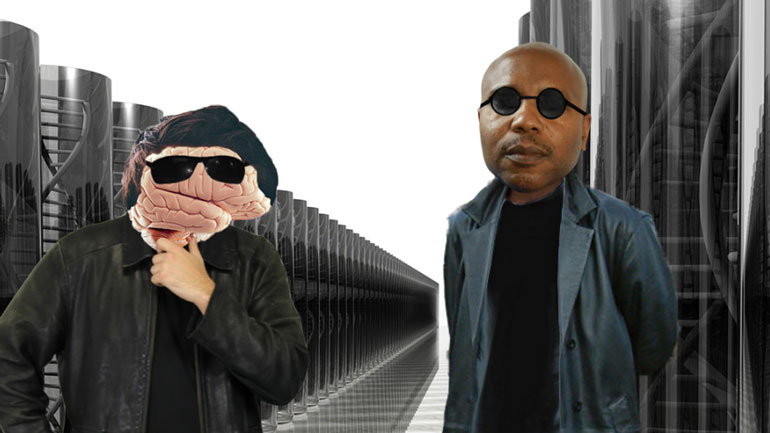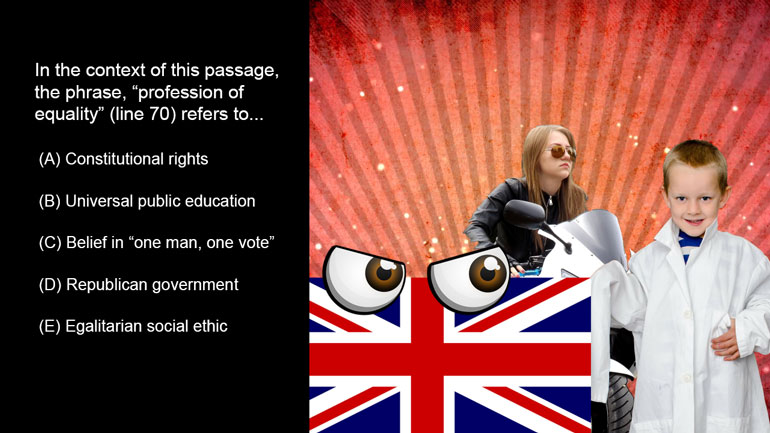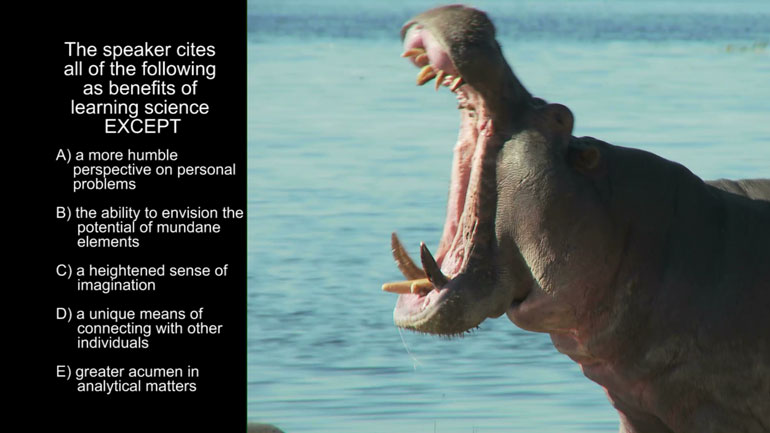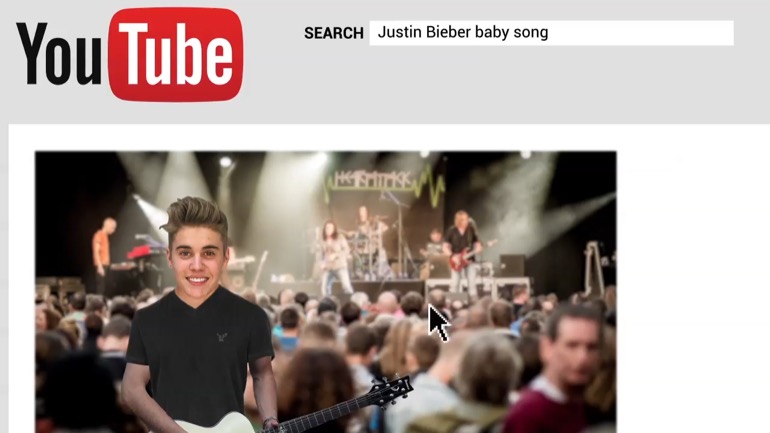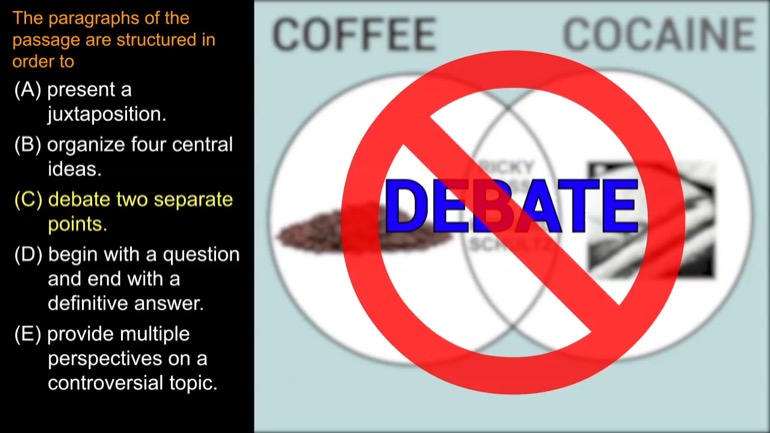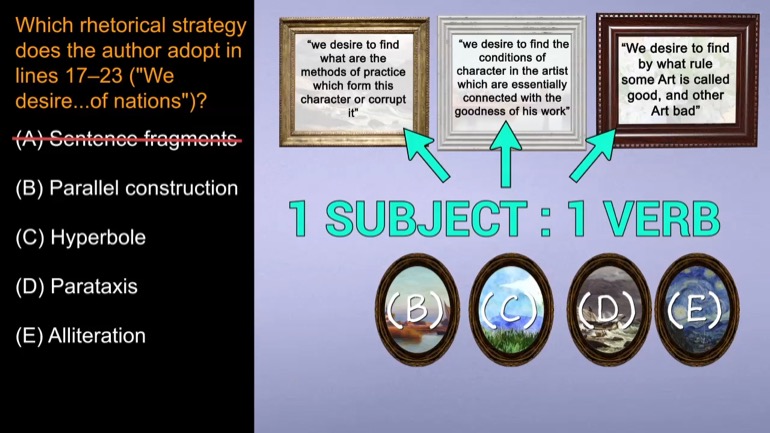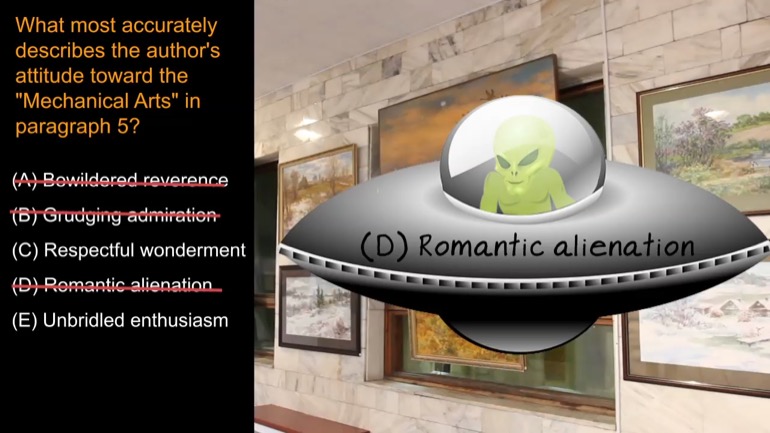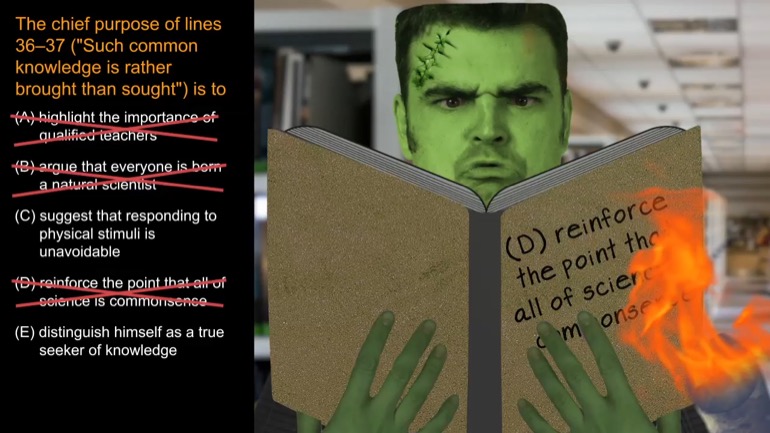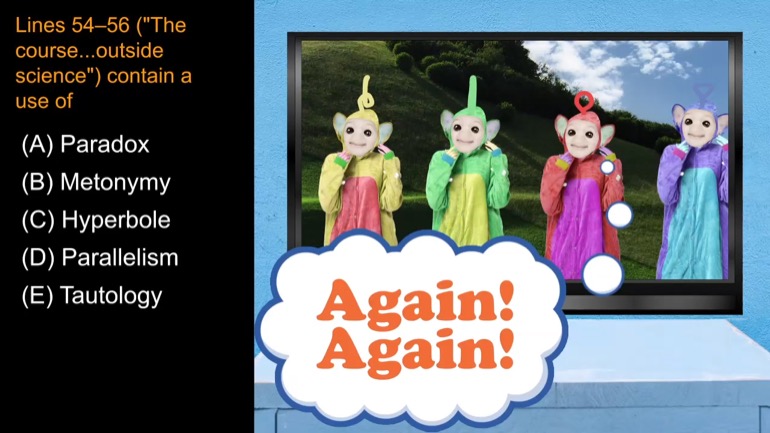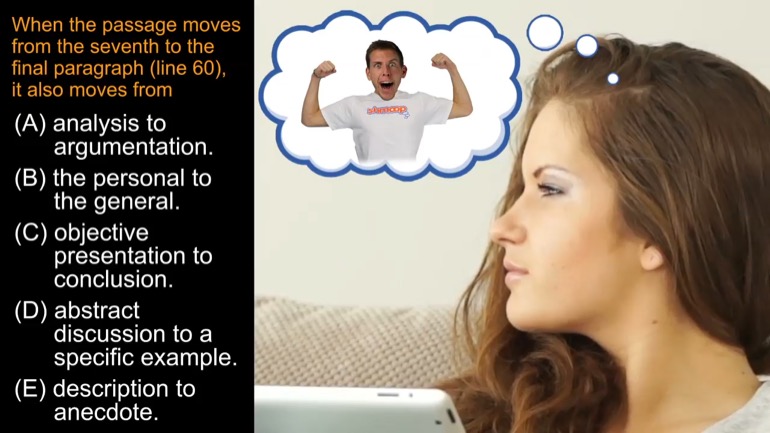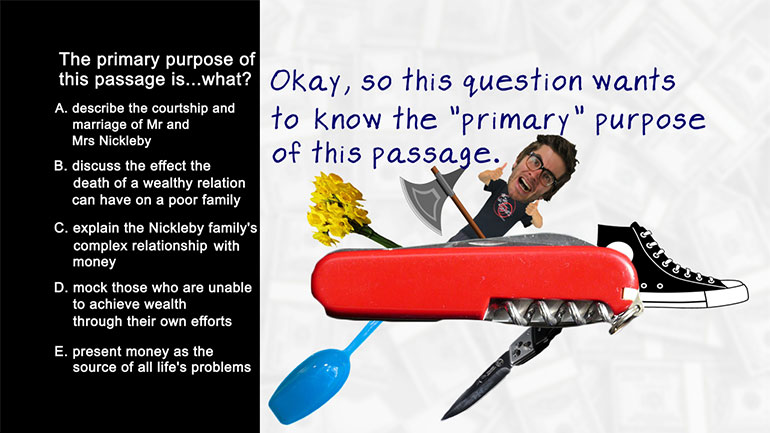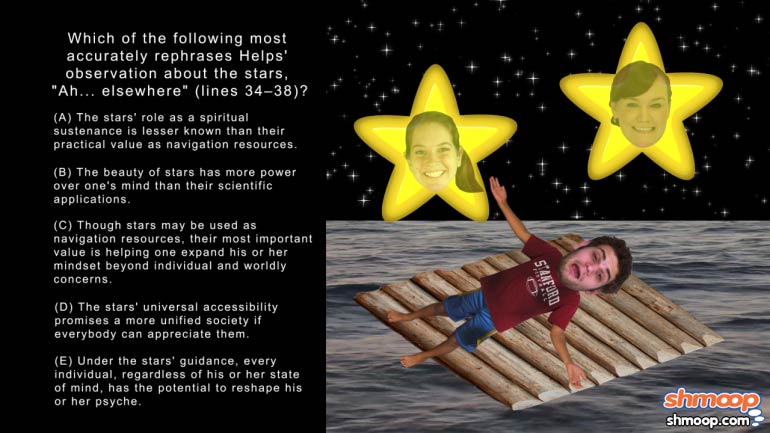ShmoopTube
Where Monty Python meets your 10th grade teacher.
Search Thousands of Shmoop Videos
AP English Language and Composition Videos 152 videos
Which answer best describes the theme of the following passage? And if you say "fission chips," we'll give you half credit. The AP test graders mig...
AP English Language and Composition 3.5 Passage Drill. How is "forcible" being used here?
Take a look at this shmoopy question and see if you can figure out which device the speaker employs the most.
AP English Language and Composition 8.7 Passage Drill 179 Views
Share It!
Description:
AP English Language and Composition 8.7 Passage Drill. What purpose does the phrase "silent current of events" serve?
Transcript
- 00:00
Thank you We sneak in and here's your shmoop du
- 00:05
jour brought to you by current events the preeminent publication
- 00:08
for all marine species traveling the eastern australian current All
- 00:13
right this question deals with a phrase found in the
- 00:16
line Fifty nine Sixty the passage so let's just read
Full Transcript
- 00:19
it right there okay The question is what purpose does
- 00:22
the phrase silent current of events lines fifteen ninety sixty
- 00:26
served right near the potential answers What purpose Purpose Okay
- 00:33
here we go Two words of the key to this
- 00:35
question and those words are silent and current kind of
- 00:40
like silent and deadly but less fatal guys quit smirking
- 00:44
The author uses the phrase silent current of events as
- 00:48
a way to suggest that most americans will not see
- 00:50
any change coming until it's already upon them Kind of
- 00:53
like no one ever sees what's coming at the end
- 00:55
of an m night channel and film except for the
- 00:57
closing credits Thankfully anyway let's take those two words and
- 01:00
apply them to answer it's true that the ocean tides
- 01:03
are controlled by currents However anyone who stood near the
- 01:06
ocean khun tell you that the ocean tides are anything
- 01:09
but silent though the currents are silent than answer is
- 01:12
not for us for that matter if we're looking for
- 01:14
silent currents floodwaters would qualify even less than ocean tides
- 01:19
So answer b is out as well as for answer
- 01:21
d it could be argued that electrical currents runs silently
- 01:25
However this articles written in eighteen thirty to a time
- 01:27
when electricity and the use of electrical motors outside of
- 01:30
scientific circles was still in its infancy so to suggest
- 01:34
that a travel author in the early eighteen hundreds would
- 01:36
use this kind of technology is a metaphor for political
- 01:39
change is too much of a stretch Well finally answer
- 01:42
e takes the word current and uses its alternative meaning
- 01:45
to suggest that the current political climate could undermine america's
- 01:48
government But if that was what she had intended the
- 01:52
right way to say it would be current events not
- 01:55
current of events So assuming that a published author knows
- 01:58
howto speak english answer e doesn't work either There's an
- 02:02
old saying strong currents run deep and let's face it
- 02:05
the deeper under a water a person descends the quieter
- 02:09
it becomes When this article the author is suggesting that
- 02:12
the historical events are like the deep underwater currents of
- 02:15
a river America she says can stay as arrogant and
- 02:18
self serving as it wants as long as they can
- 02:20
figure out a way to stop the river there sailing
- 02:23
on from flowing downstream like we ain't got a prayer
- 02:26
got it The answer We're looking for his sea and 00:02:29.245 --> [endTime] wow we totally did not see that coming
Related Videos
AP English Language and Composition: Passage Drill Drill 1, Problem 2. What is the speaker's primary purpose in using onomatopoeia in line four?
AP English Literature and Composition 1.1 Passage Drill 7. The primary purpose of this passage is what?
Wishing upon a star may help you pass your AP English Language and Composition test, but answering this question would be a safer bet.
Take a look at this shmoopy question and see if you can figure out which device the speaker employs the most.
Feel like shifting gears and answering a question about shifting tones? We've got you covered. Take a look at this question and see if you can foll...














